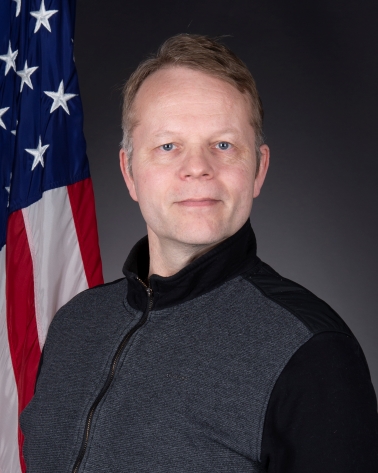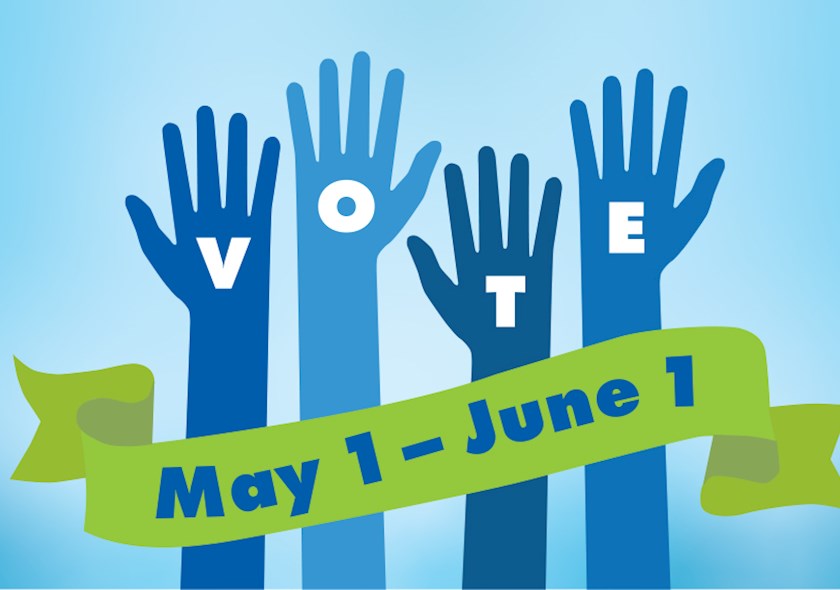Region 8 Director Official Nominee

Vision statement
ASCE has been a meaningful and significant part of my life from the day I was asked to help at a student outreach event in Laurel, MT in early 2007. Through my service as a volunteer and elected officer, I have had many opportunities to grow personally and professionally while meeting with students, communities, service organizations and legislative officers.
It is clear that ASCE faces several challenges as a society and our dues-paying membership has been declining for many years now. Local volunteer participation has also suffered from the pandemic and many of our sections and branches struggle to fill positions on their boards. It is important that we remain an organization of professionals for professionals. ASCE’s strength over our 150-year history has been our ability to bring together engineers in an apolitical environment around the practice, art, and science of civil engineering. It is important that we maintain that position where we can bring different viewpoints into a healthy conversation where we can continue to advance our profession and society using a scientific approach.
We live in a time of change, new technologies, changing conditions, and the aging of our existing infrastructure presents a challenging and rewarding place for our future Civil Engineers. I believe that by increasing our relevancy as stewards of the natural environment, and advocates for our built environment we can build a wider base of civil engineers in our currently aging profession. ASCE, have been strong advocates for our built infrastructure since our first infrastructure report card in 1998. Our state report cards have become just as important in our advocacy. Much of our infrastructure was designed and built by professionals that could not even imagine how it is used today. We need to advocate for, not just project funding, but funding of the right projects that will improve our infrastructure in a resilient way that is ready for the ever-changing needs of the future.
As a profession, we are also facing the threat of commoditization from multiple directions: by the desire for price based selection, rather than qualifications based selection; erosion of technical knowledge requirements for graduation; efforts to remove professional licensing requirements; and a shift to outsourcing design services to offshore locations. As Civil Engineers we are committed to protecting the safety and welfare of the public, we need to continue our work to safeguard licensing and qualifications based selection.
Through the Civil Engineering Body Of Knowledge (CEBOK), ASCE has defined the knowledge, skills, and attitudes necessary to practice Civil Engineering in responsible charge. As a member of the Committee on Preparing the Future Civil Engineer and the Engineer Tomorrow Initiative, I have participated in the development of self-assessment tools that our members can use on their journey of continued development as Civil Engineers, the goal of this project that is currently in pilot testing stage is to give our members e method to assess their development toward attainment of the CEBOK.
There are many other ways that define the value of ASCE membership. I believe that by being relevant to our members, and providing membership value we will inspire new volunteers and grow our local, regional and national initiatives.
As a Society Director for Region 8 I would be honored to serve as a resource for my fellow volunteer leaders and members in Region 8 and throughout the society while sharing my passion for our infrastructure, outreach, advocacy and professional advancement.
Biographical statement
Education
- M.S. C.E., Michigan Technological University, 2007
- B.S. C.E., Michigan Technological University, 2005
- 2-year Degree in Land surveying, Kiruna, Sweden, 1992
Certification and licenses
- Professional Civil Engineer, AELC13106 AELC13106, Alaska, 2011 - present
- Professional Engineer, PE-19289, Montana, 2009 - present
Work experience
- Community Planner, PACAF 673 Civil Engineer Squadron, JBER, Alaska 2022-present
- Senior Aviation Engineer, HDL Engineering Consultants, Alaska, 2015-2022
- Senior Aviation Engineer, DOWL, Alaska, 2011-2015
- Civil Engineer I, KLJ, Montana, 2007-2011
- Civil Engineer in Training, Peckham Engineering Inc., Michigan, 2005-2006
- Staff Surveyor, M-M Inc., Montana, 2000-2002
- Land Surveyor, Confortia/Sycon, Sweden, 1994-2000
- Land Surveyor, Self-employed, Sweden, 1992-1994
ASCE involvement
Society level
- Member, History and Heritage Committee; 2022-present
- Member, Committee for America’s Infrastructure; 2019-present
- Member, Committee on Preparing the Future Civil Engineer; 2018-present
- Member, Sustainability Liaison Subcommittee; 2016-present
- Member, State Government Relations and Grassroots Committee; 2016-2022
- Alaska Advocacy Captain, 2015-present
Local level
- ASCE Matsu Branch, Treasurer; 2023 – present
- Region 8 Governor; 2020-2023 Alaska Section
- President, 2018
- Vice President, 2017
- Treasurer, 2016
- Secretary, 2015
- Chair, State Infrastructure Report Card , 2016-present Anchorage Branch
- President, 2013
- Vice President, 2012
- Treasurer, 2011
- Alaska Professional Design Council, 2013-2016
- Vice President, Montana Section, 2010 Eastern Montana Branch
- President, 2009
- Vice President, 2008
- Secretary/Treasurer, 2007
Other volunteer activities
- School Liaison, Old Apostolic Lutheran Church, 2022-present
- Election Committee, Matanuska-Susitna Electric Association, Inc.,
- 2016-present
Awards
- 673 CEG CIV III employee of the quarter, 2022
- ASCE Engineering Civil Engineering Advocate of the Year, 2018
- Engineer of the Year, Alaska Section, 2017
- Engineer of the Year, honorable mention, Region 8, 2017
Publications
- 2021 Alaska infrastructure report card, Chair
- 2021 ASCE infrastructure report card, Aviation Section
- 2017 Alaska Infrastructure report card.



